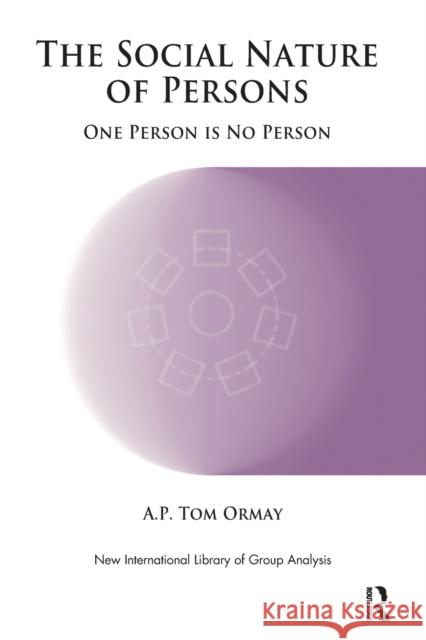The Social Nature of Persons: One Person is No Person » książka
The Social Nature of Persons: One Person is No Person
ISBN-13: 9781855757721 / Angielski / Miękka / 2012 / 238 str.
Group analysis developed out of psychoanalysis, but kept the fundamental principles of the latter. The classical structural theory of the personality comprises the id that is an ego-centred instinct, the ego that develops out of it, and the superego representing the influences of our guardians. It presents us with a lonely person, not a very useful image for group analysis. The recently discovered social instinct enables us to complete the structural theory, with an instinct based social function we call -nos-, Latin for -we-. The new human paradigm gives us the social person. We are together, not because we have to be, but because we basically like each other, various other feelings not withstanding. The -Nos- provides us with the natural milieu to relate, and opens the way for solving the deepest human problems.
For a long time it seemed unscientific to say that people were social, because the altruistic person dies out and does not have the chance to propagate its kind. The selfish person is good at survival; therefore it seemed logical to say, that selfishness was winning over altruism. Later on it became clear that we cannot understand people if we look at one person alone. We live together. One person is no person. Animals also live in communities on their own level. After that it was easy to discover the social instinct, and the values in it. The social instinct provides scientific foundation to the theory of the social person.
This book explores this theory in depth and includes chapters on instinct and group analysis; the -Nos- and the social unconscious; the phenomenology of the self and Ferenczi's main principles.











